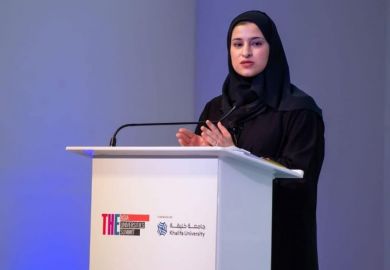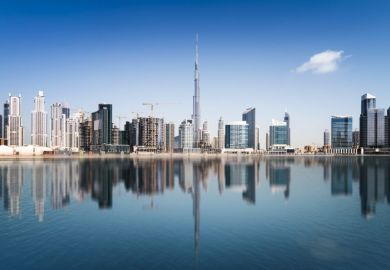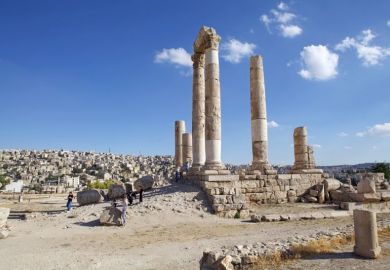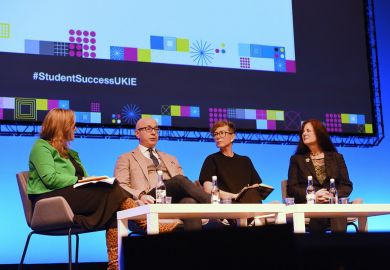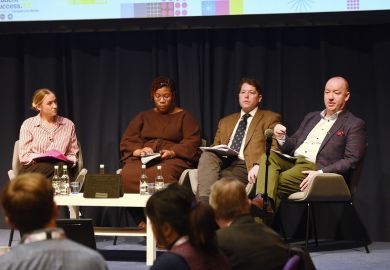The United Arab Emirates (UAE) is looking to increase demand for science in industry while ensuring that funding for research is diverse and long-term, one of the country’s ministers has said.
Sarah Al-Amiri, minister of state for advanced technologies, explained that the strategies in development and the recent restructuring of government ministries would ensure “a continuous push forwards” toward a “robust science and technology ecosystem” in the Emirates.
In July 2020, in the wake of the coronavirus shutdowns, Sheikh Mohammed bin Rashid al-Maktoum, the UAE’s vice-president and prime minister, announced a government restructuring that included creating the new Ministry of Industry and Advanced Technology and downsizing the number of federal agencies.
The UAE has been attempting to diversify its economy away from reliance on the oil industry and has tapped into science and technology to do so. The country was hit hard by the dramatic drop in oil prices and economic fallout from the pandemic.
“That's a major lesson learned here on the need for a more robust economy and more robust industry − and one that is focused on the longer term, where we need to ensure that our science ecosystem is very well supported, not only for today and not only for industry needs,” she said.
Ms Al-Amiri said that there were currently strategic priorities for health, food, water and energy alternatives. “So, looking at the production of hydrogen is one of the new priorities that we’ve added on to our overarching priority areas in science and technology,” she explained.
She said that while the government wanted to ensure that the science and technology ecosystem catered for local industries, it also wanted to see increased demand for science across the UAE.
Ms Al-Amiri said there would be more long-term funding for research programmes, and that she wanted the sources of research funding to be more diverse. “A lot of our universities are [evolving] into more and more research-intensive universities, rather than only focusing on educational aspects,” she said.
“Today, what we’re doing with the increase in demand for research is bridging more and more gaps between academia and industry and setting the research priorities from an industry perspective, be it from a technology adoption perspective, or a technology development perspective,” she said.
The government is drafting an overarching strategy that will bridge the gap between development and adoption of technology and feed back to higher education and the research framework, she added, while pointing out that her ministry was also working on a “fundamental research mechanism” that would ensure undirected research continued to happen.
The UAE needs the right environment to attract talent and “innovators” who want to start their business or develop their technology there, “which is vital to the success of an overarching science and technology ecosystem in the Emirates”.
She said that the “golden visa programme”, a 10-year residency programme that has already been awarded to 20 scientists, has been “a helpful tool” and would continue.
“The policies that are being set by the federal government will ensure there are no hindrances or bottlenecks in the process,” Ms Al-Amiri added.
Register to continue
Why register?
- Registration is free and only takes a moment
- Once registered, you can read 3 articles a month
- Sign up for our newsletter
Subscribe
Or subscribe for unlimited access to:
- Unlimited access to news, views, insights & reviews
- Digital editions
- Digital access to THE’s university and college rankings analysis
Already registered or a current subscriber?


